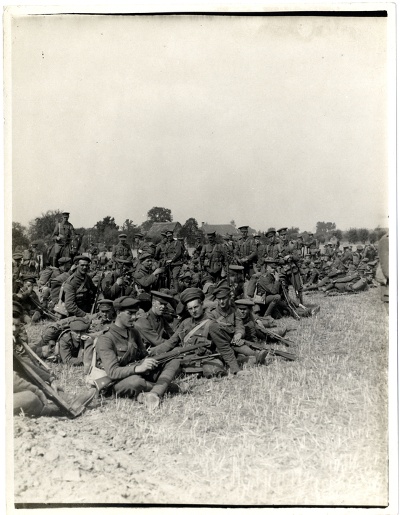Wilfred Owen, selected poems Contents
- Wilfred Owen: Social and political background
- Wilfred Owen: Religious / philosophical context
- Wilfred Owen: Literary context
- Wilfred Owen: 1914
- Wilfred Owen: Anthem for Doomed Youth
- Wilfred Owen: At a Calvary near the Ancre
- Wilfred Owen: Disabled
- Wilfred Owen : Dulce et Decorum Est
- Wilfred Owen: Exposure
- Wilfred Owen: Futility
- Wilfred Owen: Greater Love
- Wilfred Owen: Hospital Barge
- Wilfred Owen: Insensibility
- Wilfred Owen: Inspection
- Wilfred Owen: Le Christianisme
- Wilfred Owen: Mental Cases
- Wilfred Owen: Miners
- Wilfred Owen: S.I.W
- Wilfred Owen: Soldier’s Dream
- Wilfred Owen: Sonnet On Seeing a Piece of Our Heavy Artillery Brought into Action
- Wilfred Owen: Spring Offensive
- Wilfred Owen: Strange Meeting
- Wilfred Owen: The Dead-Beat
- Wilfred Owen: The Last Laugh
- Wilfred Owen: The Letter
- Wilfred Owen: The Parable of the Old Man and the Young
- Wilfred Owen: The Send-Off
- Wilfred Owen: The Sentry
- Wilfred Owen: Wild with All Regrets
Spring Offensive - Synopsis and commentary
Synopsis of Spring Offensive
 On the Western front a group of soldiers rests on a hill in the shade. Some sleep leaning against each other; others look at the sky beyond the ridge. It seems like the end of the world. It is May, late springtime. They feel the onset of summer in the natural world around them but the sky and the ridge threaten.
On the Western front a group of soldiers rests on a hill in the shade. Some sleep leaning against each other; others look at the sky beyond the ridge. It seems like the end of the world. It is May, late springtime. They feel the onset of summer in the natural world around them but the sky and the ridge threaten.
Whilst waiting, the men stare at the landscape through which they have passed, breathing peacefully. Then everything changes with the short command to start the offensive. Without panic or heroics the men quietly brace themselves and stare at the sun which is no longer a friend.
The men go ‘over the top’ and run down the other side of the ridge, exposed to the enemy. As the German guns start shelling, the shell craters create thousands of receptacles ready to catch the soldiers’ blood. Some men die in bullet fire or by explosion, of whom it is said that God caught them before they even fell to the ground.
But what, asks the poet, of the men who rushed into a battle where victory was achieved by evil inhumanities and who survived? These men are amazed to crawl out alive and be able to breathe the cool air once more. The poet wonders why they do not talk about their dead comrades.
Investigating Spring Offensive
- This is Owen’s last complete poem. Some critics say it is his best. Why do you think they say this
- What makes it a more reflective and mature poem than any of his previous work?
- There is great pathos in Spring Offensive. Explore the ways in which Owen creates the pity in this poem.
- How does the poetry come out of the pity?
Commentary on Spring Offensive
Spring Offensive is an account of a military initiative which took place in April 1917 - of its prologue, its aftermath and the men involved. Although a participant, Owen doesn’t write about himself and it is much more objective than many of his other poems.
Owen began composing the poem in Scarborough in July 1918 and finished it in September 1918 once he had arrived in France. This, his last poem, is different to everything which he had written before. It has been described as a poetic masterpiece.
Spring Offensive can be read at different levels:
- as a simple report of a day on the Western Front
- as a philosophical reflection on war
- as a philosophical reflection on the existence of God
- as a tribute to the courage of the fighting man.
In the preface to his poems, which he wrote at Ripon in March 1918, Owen had said that he had resisted writing about heroes because English poetry was ‘not yet fit to speak of them’. In Spring Offensive, his last completed poem, he begins to do just that.
Context
This last poem of Owen’s is based on his experiences in the spring of 1917. His letter home dated 25th April 1917 reads:
More on the events of 25th April 1917?
Owen sent a draft of Spring Offensive to Sassoon with a note: ‘Is this worth going on with? I don’t want to write anything to which a soldier would say ‘No Compris’ (I don’t understand).’ We assume that Sassoon replied with positive encouragement.
Investigating commentary of Spring Offensive
- Owen had written that English poetry was not yet ready to write about heroes. Siegfried Sassoon said that war was not glorious, however superb the lads were. Do you think that Spring Offensive is about heroism?
- How does Owen balance the bravery of the men with the horror of the war?
- Explain why this final poem is/is not Owen’s masterpiece?
